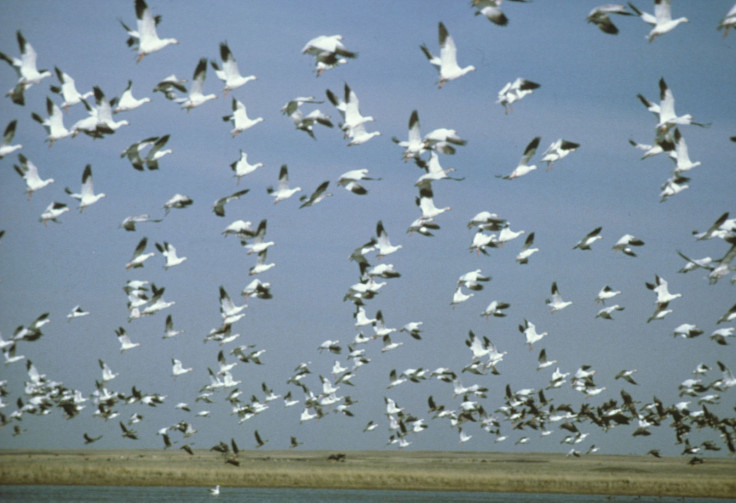UK becomes first country to invest in new global biodiversity loss tackling fund
The UK is giving millions to the Global Biodiversity Framework Fund which will fund global biodiversity loss tackling efforts like anti-poaching technology.

Britain's commitment to address climate change and global warming issues took a new leap last week as the UK government announced that they will be part of a new nature recovery fund.
The decision to contribute to this fund was made during Canada's Global Environment Facility (GEF) assembly where the UK participated. This makes the UK one of the first contributors to the Global Biodiversity Framework Fund (GBFF).
On August 25, the Department for Environment, Food & Rural Affairs revealed that the UK will be contributing £10 million to the newly launched Global Biodiversity Framework Fund (GBFF) which seeks to tackle the decreasing biodiversity problem in the world.
A recorded 185 nations came together at the Global Environment Facility (GEF) assembly in Canada to address global environmental concerns.
Furthermore, the government spoke of its commitment towards tackling global biodiversity loss as a way to reverse the effect of climate change and natural decline through this nature recovery fund. Earlier such fund allocations helped in protecting animals and wildlife from poachers.
Funding was provided to support forest rangers in Africa who could use new software to track animals, protecting them from poachers. Some funding to develop ocean management strategies in Asia also bore good results while other allocations helped in safeguarding the ancient primary forests of the world.
The British government highlighted the issue of nature and biodiversity loss, stating that one million species are facing extinction risk because of disappearing coral reefs, rainforests and peatlands. The government recognised the importance of nature and biodiversity in supporting livelihoods and food production which in turn helps in economic prosperity and national security.
The newly launched nature recovery fund will build on the existing work of the Global Environment Facility (GEF). The GEF helps developing nations tackle critical environmental problems and also funds environmental projects in 144 countries that come under the Overseas Development Aid.
GEF will oversee the implementation of the Global Biodiversity Framework, especially the financial contributions received by the fund. The Global Biodiversity Framework Fund (GBFF) can accept financial contributions from all sources.
Working together to reverse global biodiversity loss
Speaking at the Global Environment Facility assembly in Vancouver, Canada, the UK Nature Minister Trudy Harrison
said that Britain is pledging £10 million to the Global Biodiversity Framework Fund (GBFF) to protect global species and ecosystems.
Harrison spoke of working together to halt and reverse the process of critical nature decline including global biodiversity loss. The Global Biodiversity Framework Fund (GBFF) will uphold the landmark Kunming-Montreal Global Biodiversity Framework (GBF) signed by 200 nations. The GBF aims to reverse the global biodiversity by 2030 by reducing the loss to half.
Harrison also underlined how this announcement speaks of Britain's dedication towards the protection of the natural diversity of the world through international cooperation that creates a sustainable future for us.
This comes at a time when a UK-backed funding program has invested £10 million in Nigeria's climate infrastructure.
Why is the UK investing in the nature recovery fund?
The UK Nature Minister Trudy Harrison stressed the link between biodiversity and GDP, stating that half of global GDP ($44 trillion) goes to support communities dependent on global biodiversity. This is the reason why the UK spends £3 billion of its £11.6 billion International Climate Finance pledge for sustainably managing nature by protecting and restoring it, the minister added.
Britain constantly upholds the '30 by 30' target as a leader of the Global Ocean Alliance and Ocean Co-chair of the High Ambition Coalition for Nature and People, said Harrison. The Nature Minister further underlined the actions taken by the UK government at home to reverse nature's decline.
The measures taken through the Environmental Improvement Plan are aimed at protecting 30 per cent of global biodiversity by 2030. This includes restoring priority habitat with tree plantation and peatland restoration initiatives with a £750 million investment through the government's Nature for Climate Fund. This helped in protecting 35,000 square miles of English waters through marine protection areas, Harrison said.
The 2022 Living Planet report by the World Wildlife Fund showed that since 1970, the world has lost 69 per cent of its species and urgent action is needed to reverse this trend of global biodiversity loss.
© Copyright IBTimes 2025. All rights reserved.






















